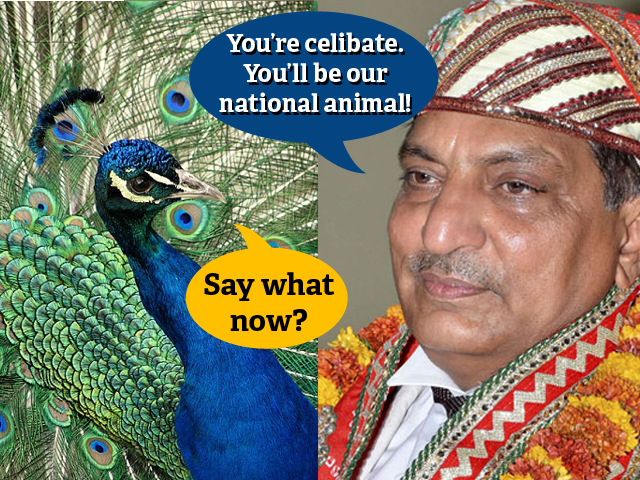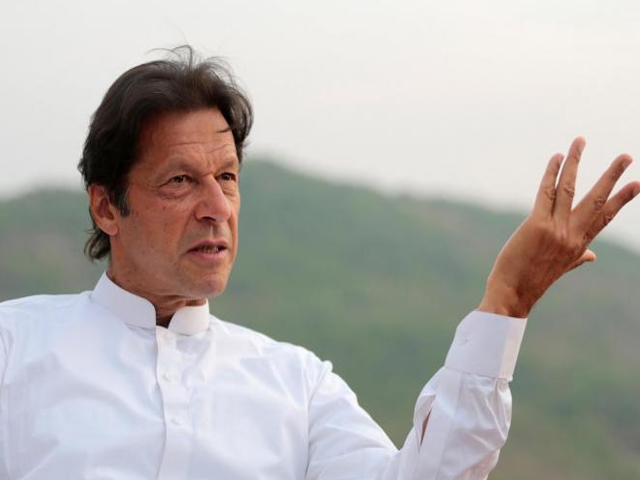
It’s not funny to maliciously demean someone, Pakistan! Don’t be Aamir Liaquat!
You can make fun of him for using powder, but to make fun of the way he might say ‘excuse me’ is troubling.
I cracked up after watching ‘Eye to Eye’ the first million times. I did not stop laughing till Taher Shah appeared on Aamir Liaquat’s show. Watching him being maliciously demeaned and bullied on live television left me feeling disgusted.
It is extremely difficult to tell when a joke goes too far. As a comedian, I struggle with it every day. Most of the comedy I see on television or social media is racist, sexist, or hateful. Any effort to point the potential harmful effects of these jokes is met with the usual dismissive response,
“It’s just a joke!”
I have been performing at clubs all over the US over the past two years. Anytime any comic would crack a racist or sexist joke, the comic would be met with a chorus of boos.
In Pakistan, comics have made a career out of making fun of ethnic minorities or perpetuating stereotypes but the US is at the complete other end of the spectrum. Recently, Jerry Seinfeld remarked that he has stopped playing at colleges and universities because they were too politically correct. Echoing Seinfeld’s statements, Bill Maher questioned on his show whether America can still take a joke.
The problem with Maher’s problem is the same problem I had with Charlie Hebdo. When a group of people who enjoy privileges, collectively make fun of a marginalised group and create stereotypes, those stereotypes hurt that community and any cause which may be associated with them. Muslims are one of the most impoverished and disenfranchised groups in France, most of them brought originally to France as slaves or refugees. I fail to see how making fun of their religious symbols by an upper class group of people is satire.
Most of you may agree with me on the Charlie Hebdo position I have taken, but the principle equally applies to all of us. My Facebook newsfeed is usually littered with people sharing videos of low-cost advertisements. Some of these ads are hilarious and one cannot help but laugh at them, but you can see why it’s problematic for a group of people lucky enough to enjoy a privileged position in society along with a quality education and when they get together to make fun of how some people talk in English.
My mantra in life is that you can make fun of anything, if you do it for the right reasons. You can make fun of the fact that a man thinks using a talcum powder will help him get girls, but to make fun of the way he might say ‘excuse me’ is slightly troubling. It puts us all in the same position that Aamir Liaquat was in when he made fun of Taher Shah on his show, and there is no point in my life that I want to be in the same position as Aamir Liaquat.
As a social satirist, the first question I ask myself while producing comedy is, “who am I making fun of?” followed by “why am I making fun of them?”
A simple rule of comedy I follow is, ‘you always make fun of people for what they do, not who they are’.
By making fun of a group of people who were not able to enjoy a quality education and are trying their level best to make a career in the field of video productions or advertisements, quite possibly without any formal education in either, from a position of privilege makes us a bully. When we all do it together on Facebook, it is akin to a group of children cornering a kid in school and making fun of the kid for being poor or uneducated.
Pakistan gives us enough things in a day to laugh at without us needing to do this. We can still laugh at these videos but laugh at them for the ideas they are promoting rather than the people involved in those videos. They often belong to an extremely marginalised segment of our society. People who are ostracised by the upper echelons of our society who are simply trying to be a part of the culture we have created for ourselves. A culture we like to keep extremely inclusive.
It is easy to see this stratification when it is blatant as we look at people struggling in the heat from our air-conditioned cars but it is much harder to understand when we are making fun of somebody’s grammar or accent, but the underlying marginalisation of a group of people is the same in both scenarios.
Make fun of the people in power, the people with privilege, not the disenfranchised marginalised part of our society that already has nothing. They could do with us not laughing at their misery. Let’s be funny without being Aamir Liaquat.




COMMENTS (22)
Comments are moderated and generally will be posted if they are on-topic and not abusive.
For more information, please see our Comments FAQ